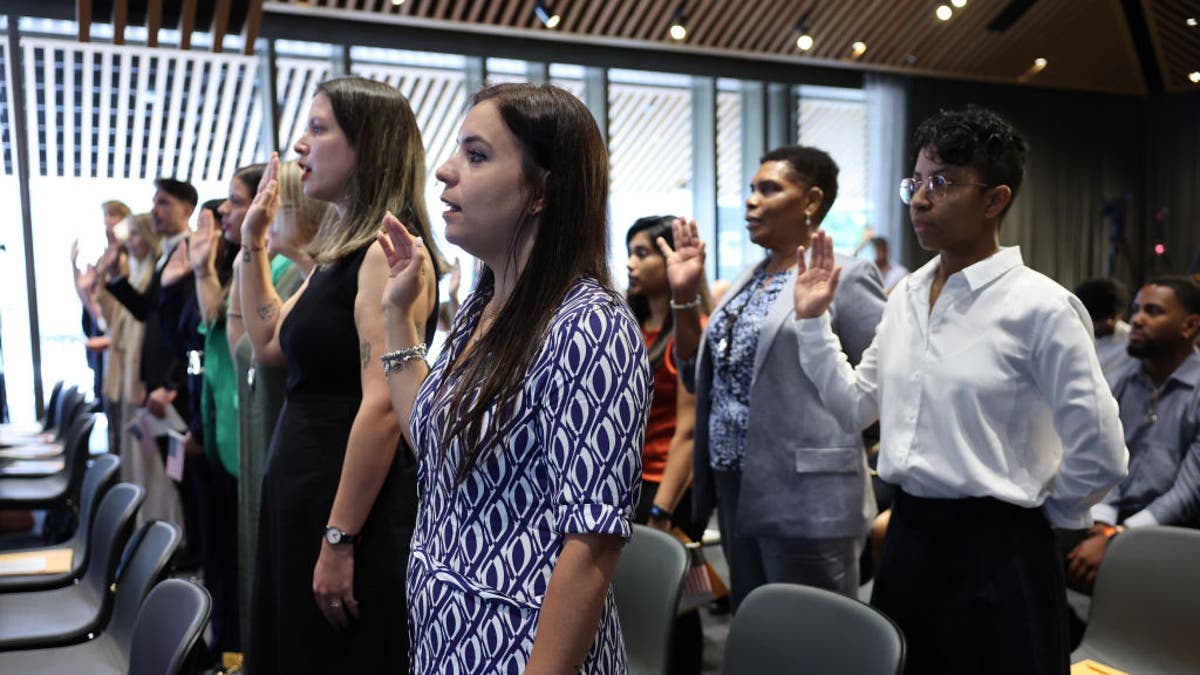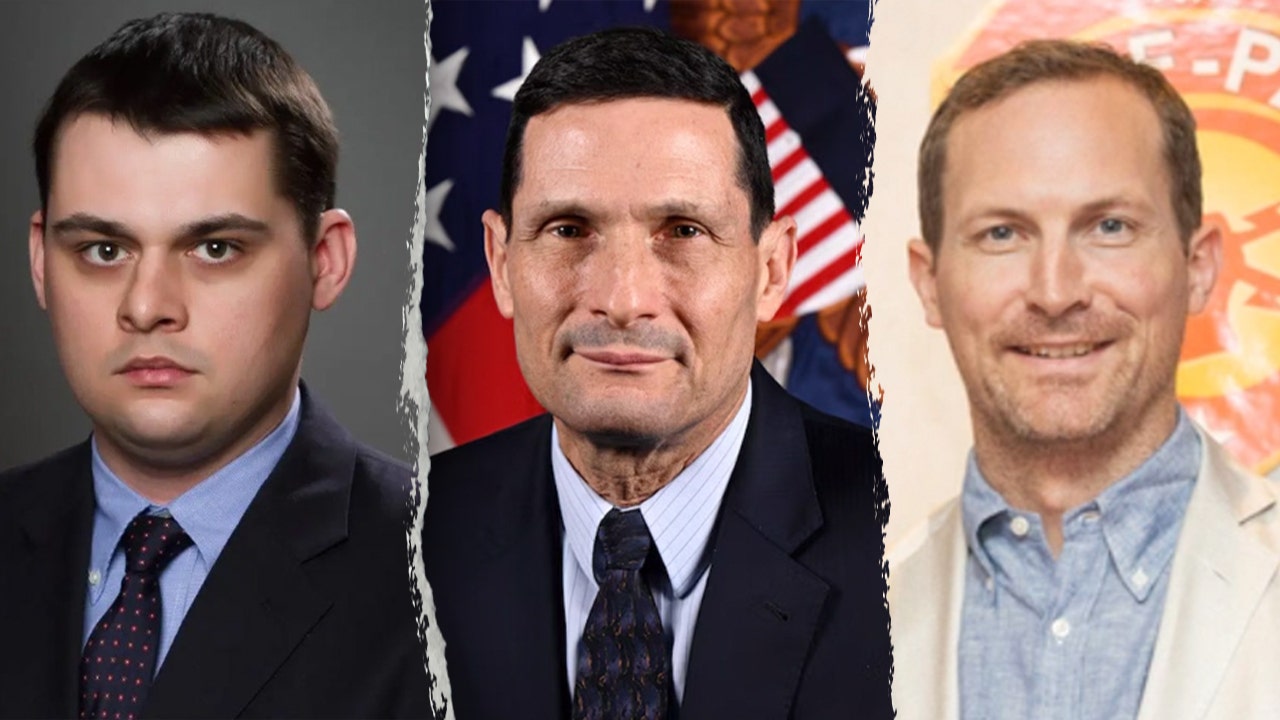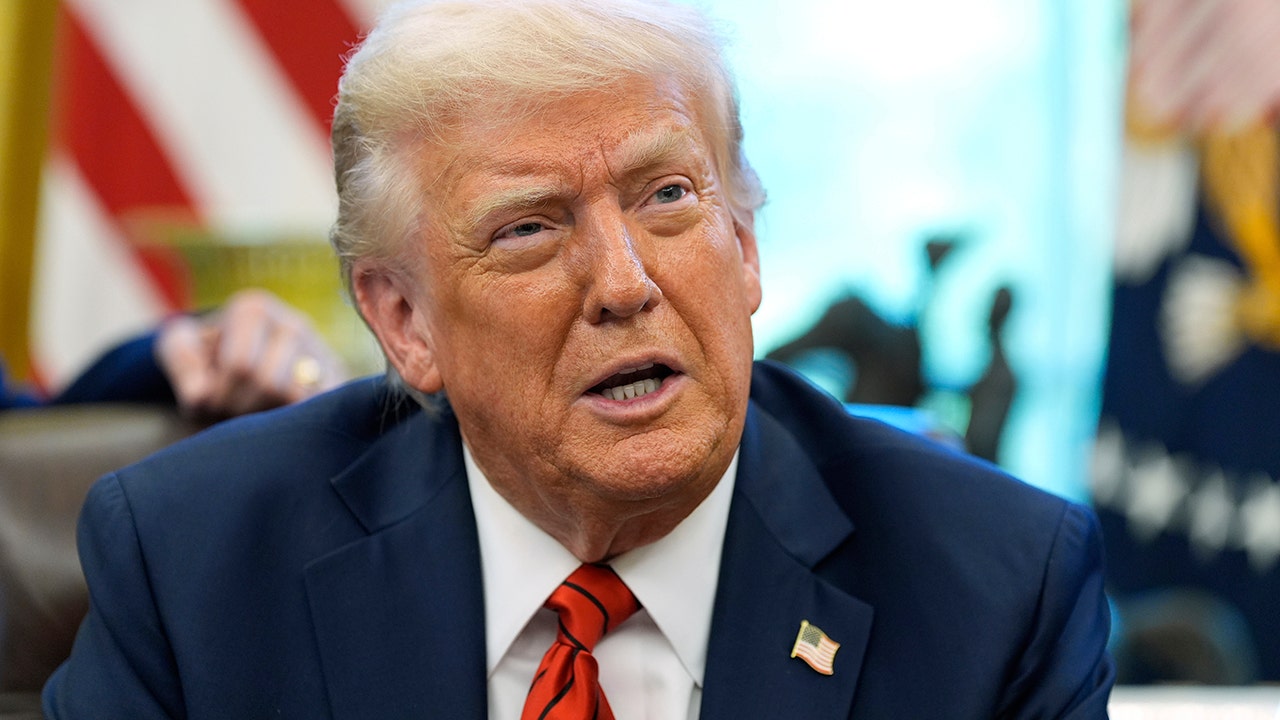The birthright citizenship clause too many forget, but Trump is right to question

NEWYou can now listen to Fox News articles!
Few of President Donald Trump’s new executive orders have caused as much alarm as the one on birthright citizenship.
That order prohibits federal agencies from issuing or accepting citizenship documents for children born in the U.S. when neither parent is a U.S. citizen or lawful permanent resident at the time of the child’s birth.
Critics paint it as flagrantly unconstitutional, including a misinformed federal judge in Seattle who issued a temporary injunction against it last week. But the new policy fits squarely within the text and original meaning of the Fourteenth Amendment.
‘BLATANTLY UNCONSTITUTIONAL’: US JUDGE TEMPORARILY BLOCKS TRUMP’S BAN ON BIRTHRIGHT CITIZENSHIP
For the first century following the Fourteenth Amendment’s ratification, few legal scholars would have batted an eye at a directive like Trump’s. If anything, they’d have been more confused as to why the federal government started issuing passports to the U.S.-born children of illegal aliens, tourists, and “temporary sojourners” in the first place.
Contrary to popular belief, the Fourteenth Amendment doesn’t say that all people born in the U.S. are citizens. It says that “all persons born or naturalized in the United States and subject to the jurisdiction thereof” are citizens. That second, critical, conditional phrase is conveniently ignored or misinterpreted by advocates of “universal” birthright citizenship.
This was intended to constitutionalize the protections of the 1866 Civil Rights Act, which provided that “all persons born in the United States, and not subject to any foreign power” would be considered citizens.
The change in language didn’t reflect a desire on Congress’s part to abrogate the statutory definition or adopt universal birthright citizenship. In fact, the Civil Rights Act remained valid law for another 70 years, with courts and legal scholars alike assuming that it was perfectly consistent with the Citizenship Clause.
That’s because the sponsors of the Fourteenth Amendment made it clear that “subject to the jurisdiction” of the U.S. means owing your political allegiance to the U.S., and not to another country. Children born to aliens are citizens of their parents’ native land, and thus owe their allegiance to, and are subject to the jurisdiction of, that native land.
Legislative history shows that Congress intended the Fourteenth Amendment to eliminate permanent race-based barriers to citizenship – not to bestow citizenship on everyone born within the geographical confines of the United States. Congress didn’t intend birthright citizenship to apply to the U.S.-born children of those who owed only a limited allegiance to the United States.
Even modern proponents of “universal birthright citizenship” admit that the children born on U.S. soil to diplomats or tribally affiliated Native Americans don’t obtain birthright citizenship. In fact, they and their children were only made citizens through the Indian Citizenship Act of 1924 — legislation that wouldn’t have been necessary if the Fourteenth Amendment adopted common law rules of universal birthright citizenship.
While critics of Trump’s order claim that universal birthright citizenship is “the settled law of the land,” the Supreme Court has never definitively addressed this issue.
The first time the nation’s highest court opined on the meaning of the Citizenship Clause — in the famous Slaughter-House cases of 1872 — it stated that the phrase “subject to the jurisdiction thereof” excluded “children of ministers, consuls, and citizens or subjects of foreign States born within the United States.”

The Court confirmed this understanding in 1884 in Elk v. Wilkins, denying birthright citizenship to an American Indian because he “owed immediate allegiance to” his tribe and not the United States.
Most legal arguments for universal birthright citizenship ignore these early cases and point to the 1898 decision U.S. v. Wong Kim Ark. However, that decision simply held that U.S.-born children of lawful permanent residents are U.S. citizens.
CLICK HERE FOR MORE FOX NEWS OPINION
Further, that decision concerned the constitutionality of acts that created a class of lawful permanent residents who, just like Black people under Dred Scott, were perpetually excluded from citizenship based solely on their race – exactly the situation the Fourteenth Amendment was designed to prevent.
Our nation’s current immigration and nationality laws no longer create this type of permanent race-based barrier to citizenship. Today, the federal statute defining citizenship (8 U.S.C. § 1401) simply repeats the language of the Fourteenth Amendment, including the phrase “subject to the jurisdiction thereof.”
Even modern proponents of “universal birthright citizenship” admit that the children born on U.S. soil to diplomats or tribally affiliated Native Americans don’t obtain birthright citizenship.
That language retains the same meaning today as it had when it was drafted and ratified. It doesn’t evolve to mean something else just because previous administrations erroneously interpreted it more expansively.
As a result, the president has the authority to direct federal agencies to act in accordance with the original meaning of the Fourteenth Amendment, and to issue government documents and benefits only to those individuals who are truly subject to United States jurisdiction.
Far from being an attempt to rewrite the Constitution or “end birthright citizenship,” Trump’s order is a much-needed and long-overdue course correction, reversing a decades-long policy that was never constitutionally mandated in the first place.
Amy Swearer is a Senior Legal Fellow in The Heritage Foundation’s Edwin Meese III Center for Legal and Judicial Studies. Hans von Spakovsky is the Manager of the Election Law Reform Initiative and a Senior Legal Fellow in The Heritage Foundation’s Edwin Meese III Center for Legal and Judicial Studies.
CLICK HERE TO READ MORE FROM AMY SWEARER
CLICK HERE TO READ MORE FROM HANS VON SPAKOVSKY
Hans von Spakovsky is a senior legal fellow in The Heritage Foundation’s Meese Center for Legal and Judicial Studies and manager of the think tank’s Election Law Reform Initiative.
Read the full article here







